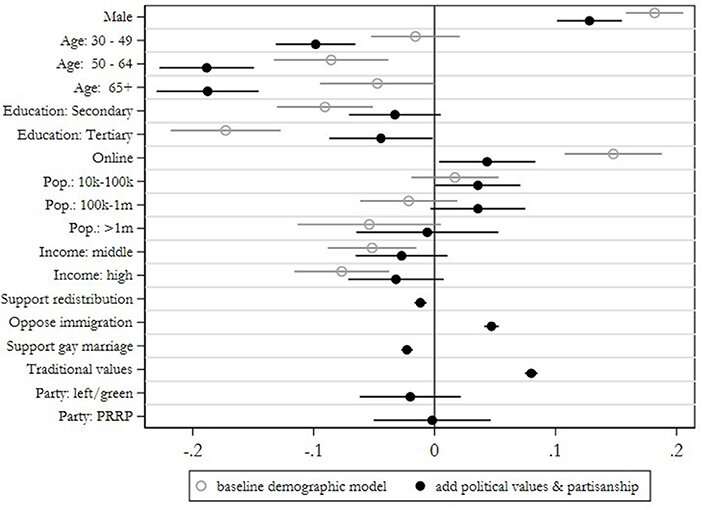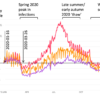It is not the older generation but young men who have the most difficulty in accepting advances in women’s rights. This has been shown by a large study from the University of Gothenburg on gender equality and sexism in Europe.
In recent decades, Western democracies have become increasingly gender-equal. Girls and women tend to avail themselves of educational opportunities even more than men do, and more and more women are getting jobs in leading positions. But while gender equality is improving, research shows that modern sexism is working against women’s rights.
One example of modern sexism is when people consider society as gender-equal and therefore oppose further efforts to promote women’s rights. Their reasoning is based on the so-called zero-sum game notion, where progress for one group is seen as being at the expense of another. Previous research shows that a perceived sense of injustice and competition between men and women affects political attitudes and voting behavior.
“Some people believe that increased gender equality only benefits women and do not see the benefits for society as a whole. Some research suggests that this feeling of injustice can even motivate citizens to vote for right-wing radical parties who are against feminism and sexual freedom,” says Gefjon Off, doctoral student in political science.
Together with Amy Alexander and Nicholas Charron, both political scientists at the University of Gothenburg, she has studied what lies behind the relatively high incidence of modern sexism among young men in Europe. The study is based on a survey with 32,469 respondents in 27 EU countries. The respondents were asked to state to what extent they agree with the statement that “promoting women’s and girls’ rights has gone too far because it threatens men’s and boys’ opportunities.”
“The results show that young men aged 18 to 29 most often agree with this statement in our survey. The older the men are, the less they agree with this statement. Some women agree with the statement, but to a far lesser extent than men of all ages. The results contradict previous research claiming that the older generation are the ones who are the most conservative and opposed to advances in women’s rights,” says Gefjon Off.
The researchers identified a couple of factors that explain why modern sexism is highest among young men aged between 18 and 29 years. The proportion is highest in regions where unemployment has risen the most in recent years, and where citizens have a widespread distrust of social institutions for example, due to widespread corruption.

Covariates of opposition to advances in women’s rights. Coefficients are from negative binomial estimation and express the expected change in the dependent variable from a one-unit increase in the covariate, with 95% CIs. The reference categories are: aged 18–29, less than secondary education, low income, and Frontiers in Political Science (2022). DOI: 10.3389/fpos.2022.909811
Slovakia is the EU country in the study where the highest proportion of young men are opposed to advances in women’s rights. In some regions there, unemployment has risen by as much as 1.1% in the last two years.
“More than other EU citizens, Slovaks think that their own country’s public institutions are not impartial, that is, that their social institutions favor certain groups of people,” says Nicholas Charron, Professor in political science.
The study also shows the inverse situation. In regions such as Northern Italy where unemployment has fallen and where social institutions are perceived as reasonably impartial, young men are less resistant to advances in women’s rights.
Unemployment also plays a role in Sweden. The study shows that the largest proportion of young men who agree with the survey statement that advances in women’s rights threaten men’s and boys’ opportunities live in regions where unemployment has risen in the last two years.
“The gap between young women’s and young men’s views on advancing women’s rights is great in Sweden, among the top 10 in the EU according to our measurements,” says Nicholas Charron.
The fact that young men stand out in this context may be due to their position on the labor market: At a young age they may not yet have a stable job, or they may not have progressed as far in their careers as older men.
“Possibly, young men who believe that women are outcompeting them in the labor market experience advances in women’s rights as unjust and a threat. We need to get better at communicating the benefits of gender equality. Fathers get to spend more time with their children and the burden of being the family’s breadwinner is lightened when mothers in families also advance in their careers,” says Gefjon Off.
The study is published in Frontiers in Political Science.
More information:
Gefjon Off et al, Who perceives women’s rights as threatening to men and boys? Explaining modern sexism among young men in Europe, Frontiers in Political Science (2022). DOI: 10.3389/fpos.2022.909811
Provided by
Swedish Research Council
Citation:
Young men feel the most threatened by advances in women’s rights (2022, September 26)



